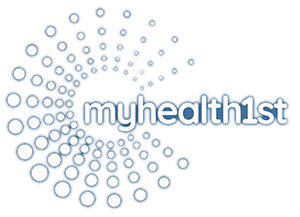Menopause – it’s like a rite of passage that no one really talks about at parties. But here’s the thing: those changes you’re experiencing as you age might be more about your hormones calling for help than just the passing of years.
Menopause is a natural biological process for all women, but what exactly happens during this time? Let’s break it down:

There’s a lot of misinformation about hormone replacement out there. Let’s clear some things up:
Menopause isn’t just a medical condition; it’s a life stage that can be embraced positively. With a holistic approach that includes bioidentical hormone therapy, lifestyle changes, and a supportive community, it can be a time of renewal and empowerment.
At MyHealth1st, we’re committed to providing comprehensive care and support for women going through menopause. Understanding the biological changes and having the right treatment options can transform this experience into a positive phase of life.
Want to explore more on this topic? Check out these valuable resources:
If you have any questions or want to start your journey towards balanced health and vitality, don’t hesitate to contact us. We’re here to support you every step of the way.

Join our newsletter for health news and My Health 1st events.